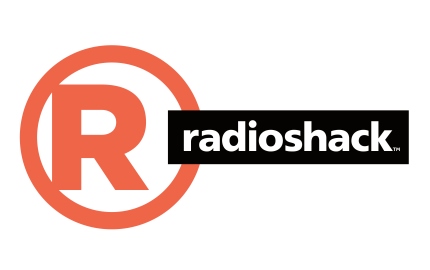RadioShack Corp. (NYSE: RSH) needs to immediately reflect upon its earnings report in June and admit that the situation is untenable. The company’s sales trends and earnings have steadily deteriorated, to the point that the company could not secure a buyer when it was exploring strategic options. The company’s first-quarter results only highlight how weak the RadioShack core business has become. It is time for RadioShack to protect its future while it still has some assets to work with.
The time for a Chapter 11 reorganization has come, even if the company still has assets on the books.
While growth is hard to come by for electronics retailers in this economy, revenue was down by 13% to $736.7 million. The mobility platform sales were down 19%, and its retail platform was down more than 9%. RadioShack’s EBITDA of negative $227 million for the trailing 12 months was much worse than the negative $161 million of last year. That EBITDA was positive in 2012 at roughly $48 million. Gross margin also contracted by another 370 basis points in the most recent quarter.
One additional drag on RadioShack is that the company will not be able to right-size itself. RadioShack’s plan of 1,000 or more store closures does not look likely. The previous earnings report confirmed 22 stores closed for fiscal 2015 so far, and the expectation was that it would close up to 200 stores this year.
On Wednesday came the ultimate slap from a Wall Street analyst. The firm B. Riley already had a Sell rating, but the firm’s Scott Tighman dropped his already scathing $1 price target down to zero — a goose egg, nada, zilch! He sees no recovery in sight, a fast cash burn rate, steep sales declines and more. Tighman put RadioShack’s chances of a bankruptcy filing as more than 50%.
ALSO READ: America’s Nine Most Damaged Brands
Last month, the ratings agency Moody’s pointed out that RadioShack’s impasse with lenders on store closures was considered a “credit negative.” The reality is that this is an understatement. Even in the summer of 2013, Standard & Poor’s warned that RadioShack could face a default within 12 months.
Fitch Ratings also believes that the company has very limited options at this point. Fitch’s report on June 11 said:
RadioShack’s liquidity is dwindling. Fitch expects negative free cash flow of $200-$250 million over the balance of 2014, which, together with seasonal inventory build-up of $100-$150 million, would substantially eat into the company’s total liquidity of $424 million as of May 13, 2014. This liquidity was comprised of cash of $62 million and revolver availability of $362 million (after $68 million in letters of credit) and was down from liquidity of $554 million at year-end 2013. Management indicated that it drew on its revolver to fund operating losses post quarter-end and that $35 million was outstanding on the revolver as of June 9, 2014.
Fitch believes RadioShack does not have material sources of liquidity beyond its revolver, as virtually all of its assets have been pledged to its credit facilities. Fitch expects excess liquidity to be very tight as we approach peak seasonal borrowings, which could prompt a restructuring before year end.
It was recently suggested that the idea like RadioShack Labs could be a means of saving the company. Unfortunately, the company might have targeted its Labs effort too late to matter. GE’s financing in 2013 was secured by the company’s inventory and other assets. What happens if the company just lets itself bleed to zero cash for operations?
RadioShack’s operating loss was $98.3 million in the past quarter. It ended the period with total liquidity of $423.7 million. The problem is that this was only $61.8 million in cash and cash equivalents and $361.9 million of availability under the 2018 Credit Agreement. As RadioShack keeps tapping that liquidity, the less flexibility it has to operate the way it needs to. The company further said with earnings:
This availability is net of letters of credit totaling $67.8 million outstanding at May 3, 2014. The Company’s total debt was $614.5 million at May 3, 2014, which matures between 2018 and 2019. Subsequent to the end of the quarter, the Company drew on the 2018 Credit Facility for general corporate purposes. As of June 9th, we had outstanding borrowings of $35.0 million under the 2018 Credit Facility. We expect to further utilize the 2018 Credit Facility during the remainder of the year.
Sometimes a company has to know when to admit that it has lost. What we are proposing is that RadioShack doesn’t just gut itself to stay in the graces of its lenders. The company needs to be preemptive here, because its management faces a no-win scenario.
There is some value to get at here — its large distribution centers rather than its stores. Even then, it would be a guess as to what those are ultimately worth to a buyer. RadioShack’s annual report says:
We lease, rather than own, all of our retail facilities. Our stores are located in shopping malls, stand-alone buildings and shopping centers owned by other entities. We lease administrative offices throughout the United States and in Mexico, Hong Kong, and Taiwan. We own the property on which our three distribution centers and two manufacturing facilities are located within the United States.
If RadioShack waits until it has no cash and runs through its liquidity, then there will be nothing left. If the company moves to file for bankruptcy protection, there could at least still be something left for equity holders and the creditors alike. What will be left in another year?
ALSO READ: Companies With the Best (and Worst) Reputations
On June 12 reported that RadioShack could become a penny stock. Things ultimately look far worse than that!
In Star Trek terms, it looks almost certain that RadioShack faces a Kobayashi Maru test, one that cadet James T. Kirk cannot reprogram as a victorious scenario.
A Chapter 11 filing now would save the assets and likely leave something left over for equity holders and for creditors. A Chapter 7 liquidation next year will likely leave equity holders with nothing but a tax write-off, and it may not leave creditors with much in the way of assets to divvy up.
The Average American Has No Idea How Much Money You Can Make Today (Sponsor)
The last few years made people forget how much banks and CD’s can pay. Meanwhile, interest rates have spiked and many can afford to pay you much more, but most are keeping yields low and hoping you won’t notice.
But there is good news. To win qualified customers, some accounts are paying almost 10x the national average! That’s an incredible way to keep your money safe and earn more at the same time. Our top pick for high yield savings accounts includes other benefits as well. You can earn up to 3.80% with a Checking & Savings Account today Sign up and get up to $300 with direct deposit. No account fees. FDIC Insured.
Click here to see how much more you could be earning on your savings today. It takes just a few minutes to open an account to make your money work for you.
Our top pick for high yield savings accounts includes other benefits as well. You can earn up to 4.00% with a Checking & Savings Account from Sofi. Sign up and get up to $300 with direct deposit. No account fees. FDIC Insured.
Thank you for reading! Have some feedback for us?
Contact the 24/7 Wall St. editorial team.



